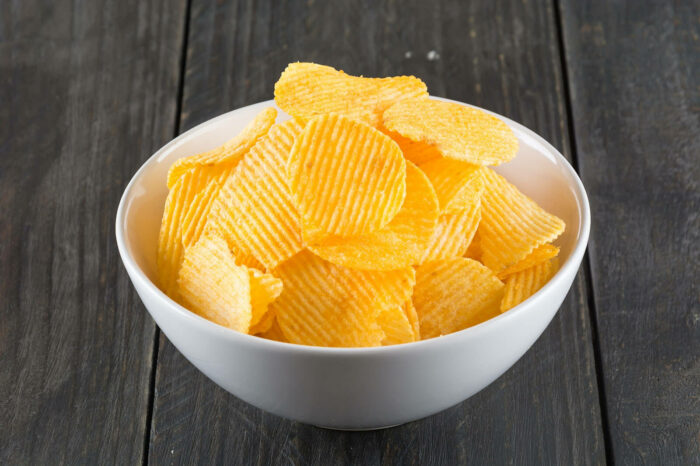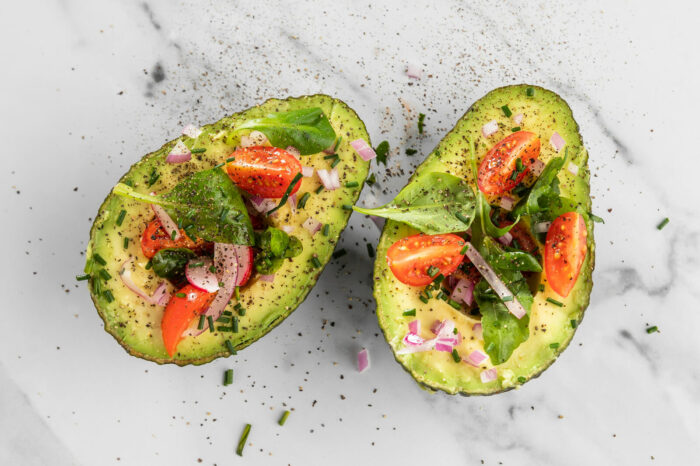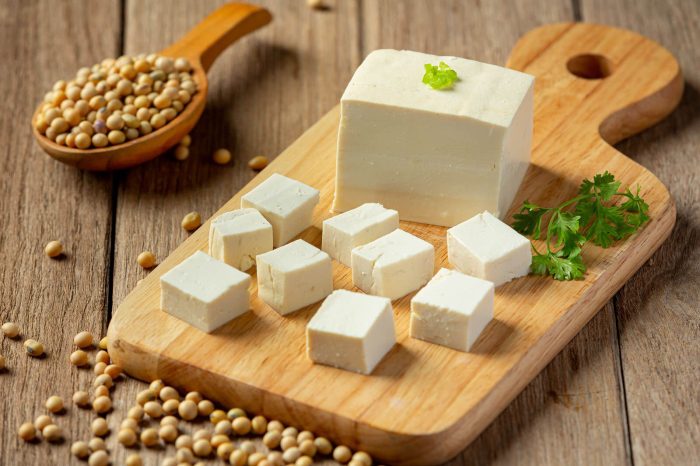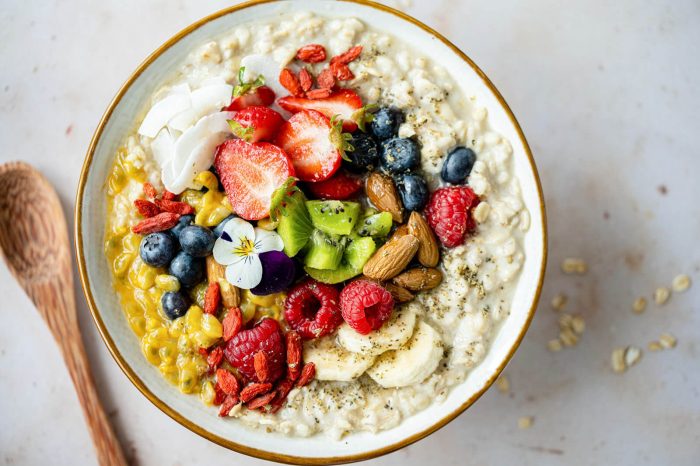Top 10 Vegan Fat Sources for Plant-Based Diets (Vegan Fats)
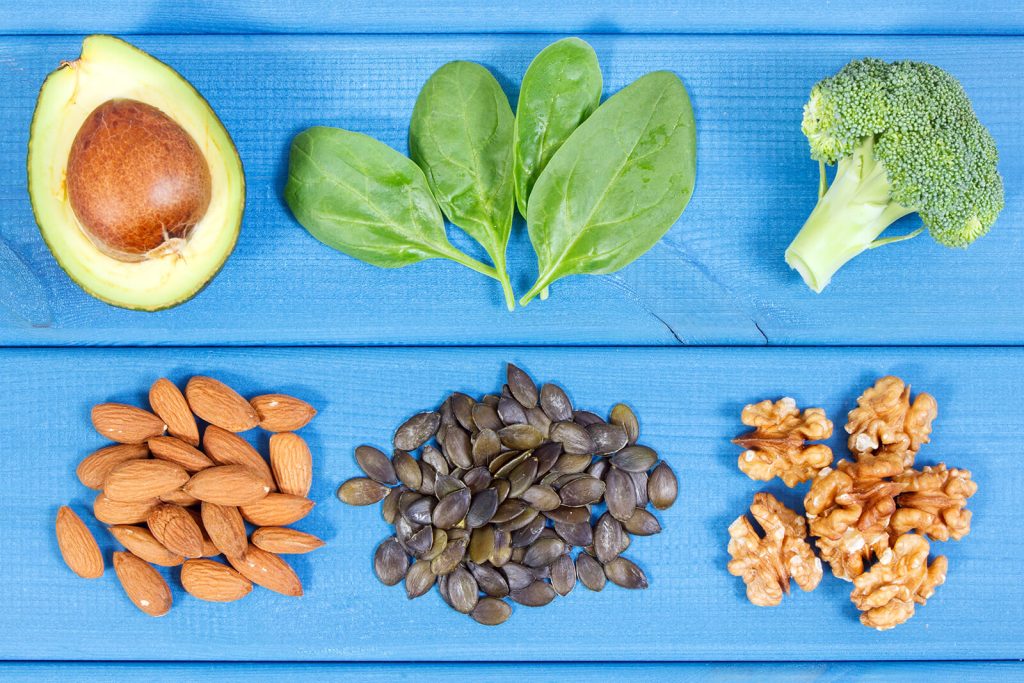
Eating plant-based comes with many benefits such as improved cholesterol levels and lower blood pressure. Just because this way of eating focuses on plants does not mean that it has to be boring or lack flavor. In fact, vegan diets offer a variety of delicious and nutrient-dense foods that provide healthy fats.
We as vegans tend to feel healthier and more energized when we eat the proper types of nutrition. Knowing and finding the right vegan fat sources is extremely important, especially if your everyday functions depend on it. We’ll go over all the vegan fats you’ll need to make sure you’re eating a healthy vegan diet.
What Are Fats? (High Fat and Low Fat)
Fats are an essential part of a vegan diet and can be found in many vegan foods, such as nuts, olives and avocados. There are foods that are high fat and some that are low fat. Vegetable oils are also vegan sources of fat, including sunflower oil and olive oil. Fats play an important role in vegan diets by helping to balance macronutrients and providing vegan energy for proper health.
In addition to providing an energy source, fats are also vital for growth, hormone production and absorbing vitamins. For example, fat-soluble vitamins such as A, D, E and K need to be consumed with fat to be able to enter the body’s cells for utilization. Eating healthy vegan fats can help vegan dieters maintain a balanced whole food nutrition program that is ethical and sustainable for the body, animals and the environment.
Types of Vegan Fat Sources
Vegan fat sources are complex and varied. Plant-based diets consist mostly of two types of dietary fat: unsaturated fat and saturated fat. The fat type is very important.
Unsaturated fats are typically considered to be beneficial for health, since these can improve cholesterol levels and lower risk of heart disease.
Saturated fats may not necessarily be seen in the same light as unsaturated fats, but they can still make up an important part of a balanced vegan diet or vegetarian diet.
It’s important to avoid highly processed trans fats which have been criticized for increasing inflammation in the body and linked to negative health outcomes.
With so many options available, vegans have plenty of ways to get all types of diet fats through natural, unprocessed food sources.
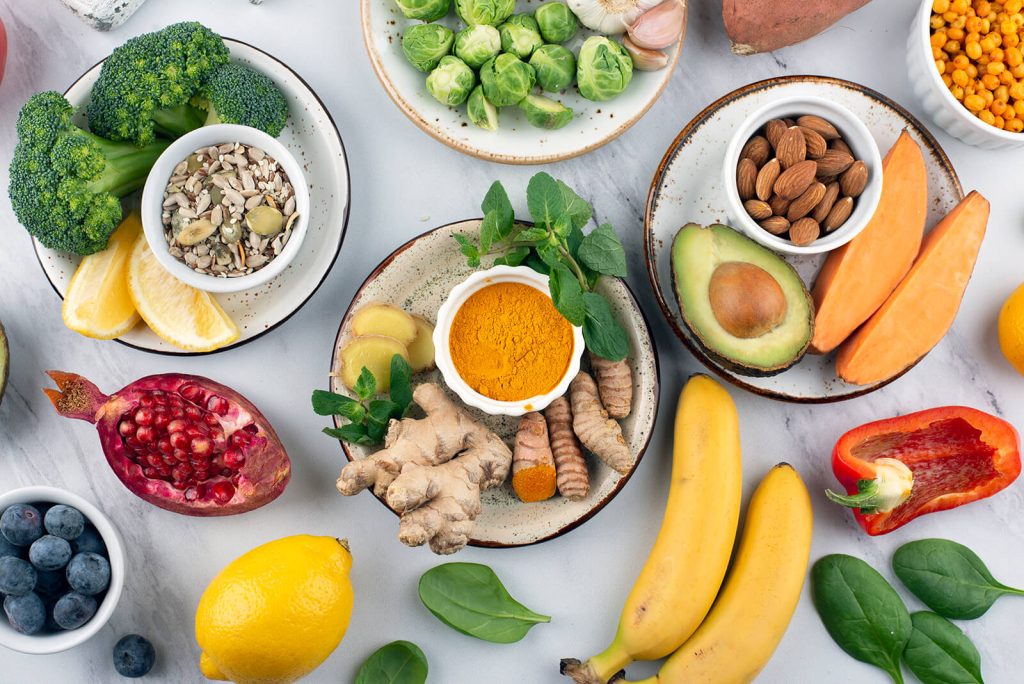
Saturated Fat
Saturated fats are fats with a large number of hydrogen bonds and tend to be solid at room temperature. They are found naturally in animal products, such as butter, cream, cheese, and fatty cuts of meat, and in some plant-based oils like coconut and palm oil.
Consuming large amounts of saturated fat can increase the risk for heart disease or other health issues associated with poor cholesterol levels. However, including small amounts of these fats in a balanced diet may actually turn out to be beneficial as they can also provide certain essential nutrients essential for healthy organ functioning.
It is recommended to limit your saturated fat intake but if you do wish to have it, then opt for healthier options like whole grains, nuts, seeds and being conscious when cooking foods using saturated fat.
Unsaturated Fats
Unsaturated fats are an important part of a healthy diet. They are found naturally in many plant-based food sources, such as nuts, olives, seeds, and avocados. There are two types of unsaturated fats. Monounsaturated fats and polyunsaturated fats.
Unlike saturated fats which can lead to adverse health effects when consumed in excess, unsaturated fats have been found to have beneficial effects on cholesterol levels and overall heart health.
For example, replacing saturated fats with monounsaturated fats can help reduce LDL and total cholesterol levels. Additionally, it is thought that unsaturated fats may play a role in improving insulin sensitivity as well as reducing inflammation.
Monounsaturated Fats
Monounsaturated fats are a type of dietary fat that have been linked to numerous health benefits. This kind of fat is found in plant-based oils, nuts, and avocados. Its main benefit is its ability to reduce levels of harmful cholesterol and triglycerides in the bloodstream, thereby lowering the risk for stroke and heart disease.
Additionally, monounsaturated fats can help promote healthy blood sugar levels and even aid in weight loss by creating a feeling of fullness after consuming meals containing them.
Despite its long list of beneficial properties, it is important to remember to consume monounsaturated fats in moderation as part of a balanced diet. It is still recommended to consume this in moderation.
Polyunsaturated Fats
Polyunsaturated fats are a type of fat that can be found in many plant sources. These fats are essential for the body because they provide energy, help maintain cellular function, and many studies have associated them with various health benefits such as reducing cholesterol levels and stabilizing blood sugar. Polyunsaturated fats are mainly found in foods such as oils from olives and nuts, fatty fish, avocados, and flax or pumpkin seeds. Including these beneficial fats into your diet not only satisfies those cravings but also helps you maintain a healthy lifestyle. This type of fat is much healthier than saturated and trans fats which should be limited to keep your heart healthy.
Trans Fat
Trans fats are a type of unsaturated fat that has been made from an industrial process called hydrogenation. This process involves combining extra hydrogen atoms with vegetable oil to create a product that has a longer shelf life and a different texture than most other fats.
Although trans fats may offer some advantages to consumers, they can cause numerous health issues including raising cholesterol levels, increasing the risk of developing heart disease, and even leading to stroke.
Although countries like Denmark and some US states have better regulations on trans fats, it is unfortunately still found in many processed foods around the world. In general, trans fat is bad for you and the worst type of fat to eat.
Why Do Vegans Need Fats?
We as vegans, need fats, because healthy fats and fatty acids play a key role in maintaining vegan diets that benefit both mental and physical health. As a result, plant-based diets tend to include nuts, avocados and other fatty foods as their daily nourishment in order to obtain sufficient levels of vitamins, minerals and energy while avoiding excessive carbs or proteins.
In addition, fats help vegans feel full longer so they can make smarter choices when snacking throughout the day without jeopardizing their nutrition balance. It’s time to add some healthy vegan fats into your recipes!
How Much Fat Do We Need?
Fats are essential to our diets, but we don’t always know how much of it we should be eating in order to stay healthy. It’s important to remember that not all fats are created equal – trans and saturated fats should be kept at a minimum, while unsaturated and omega-3 (DHA) fatty acids should be consumed in moderation.
Research suggests that adults should have about 20–35% of their daily calories come from fats for optimal health. This includes vegans, vegetarians, and everybody alike. Increasing the intake of healthy fat sources such as olive oil, nuts, and avocados can provide our bodies with essential nutrients to keep us going while reducing the risk of developing diabetes, heart disease and other conditions.
Healthy Vegan Fats
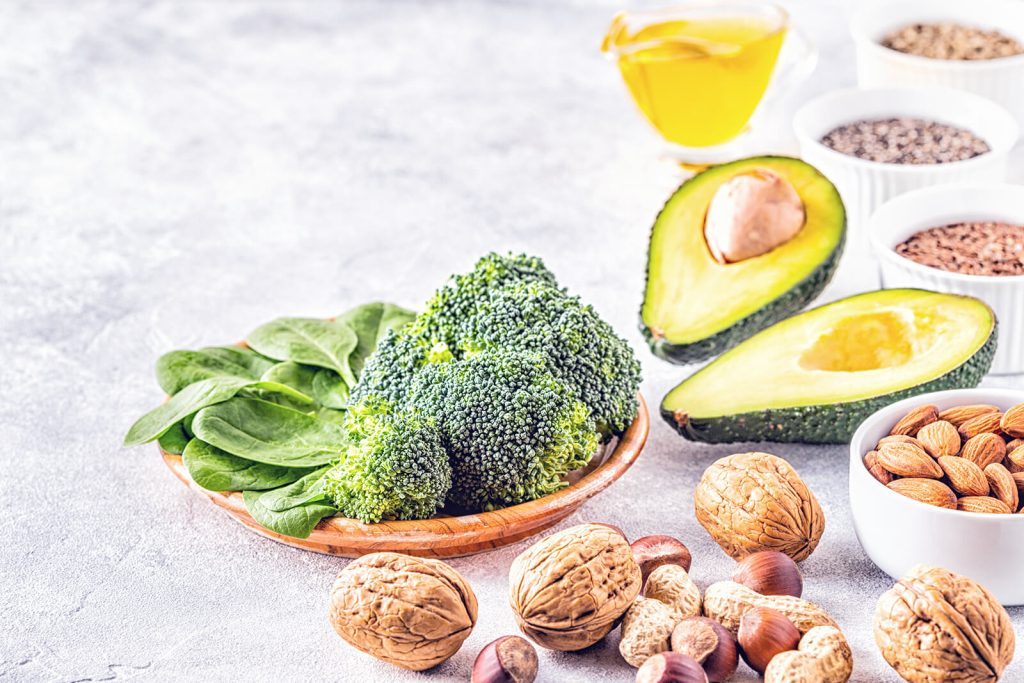
There are many healthy vegan fats to choose from. Here’s a list of healthy fats for vegans you can incorporate into your meal.
Avocado
Avocados are one of the most nutrient-dense foods in existence, and has high fat, providing many health benefits. They contain mostly healthy monounsaturated and polyunsaturated fats, which are both important for our body’s normal functioning and for a beneficial cholesterol balance. Avocados also have a very high amount of fiber compared to other fruits. The combination of fats, fiber, and other nutritive properties make avocados a great choice.
Chia Seeds
Chia is a type of seed that contains an exceptional amount of unsaturated fatty acids. It is made up of 30% omega-3 alpha-linolenic acid, 18% omega-6 linoleic acid, 19% oleic acid (monounsaturated fat) and 15% saturated fatty acids. This combination makes the chia seed a perfect candidate for healthy snacks and meals since it packs both energy and key nutrients like essential fatty acids for proper brain and bodily function.
Tofu
Tofu is a highly nutritious food and is in a lot of vegan foods. As you already know, soy is a main staple and a complete protein source. It’s loaded with important vitamins and minerals, as well as an impressive range of healthy fats. In particular tofu contains essential fatty acids such as Omega-3 and Omega-6, and together they make up 4 percent of its caloric content.
Not only are they beneficial for overall health, they also help improve skin conditions and cholesterol levels. Additionally, some types of tofu have small amounts of saturated fats, although it is significantly lower than other sources like red meat. The good thing is that tofu does not have trans fat.
If you’re not already using tofu in your recipe, you definitely should add it!
Durian
Durian is a popular delicacy in Southeast Asia known for its spiky skin and strong aroma. While many enjoy the creamy texture and sweet taste, it may surprise some to learn that durian is actually an excellent source of healthy fats.
Durian contains high levels of monounsaturated and polyunsaturated fatty acids, including oleic acid and palmitoleic acid as well as essential fatty acids, omega-3 and omega-6. The creamy texture of durian can be attributed to the content of saturated fat in the fruit; most notably stearic acid. All told, durian can contain anywhere up to 6 grams of fat per cup serving.
Coconut
Did you know that coconuts are full of healthy fats? It contains two types of fats – Lauric acid and Medium Chain Triglycerides (MCT). Lauric acid contains about 47-50%, and it’s the main source of fatty acids in coconut.
On the other hand, MCT comprises 6-8% of the total fat content. These unique fats provide multiple health benefits like boosting metabolism, increasing weight loss, and reducing cholesterol levels. Also, both these types of fats are easily absorbed by the body because they are smaller in size than other dietary fatty acids.
Coconut oil is also great for you as it is a good source of antioxidants. Many people use coconut in their food but also their hair. Coconut oil does contain about 12 grams of saturated fat.
Nuts
Nuts are a popular snack choice and they offer more than just great taste. They are also a concentrated source of dietary fats that can support vibrant health. Most nuts provide both monounsaturated and polyunsaturated fats, such as oleic acid in almonds, linoleic acid in walnuts, and alpha-linolenic acid in macadamia nuts.
In addition to these healthy fats, some nuts also supply saturated fat like the lauric acid found in coconuts. You can generally feel good about eating an ounce of most types of nuts — roughly equivalent to one or two handfuls — for beneficial health benefits.
Pecans, almonds, and walnuts are great examples of the nuts you should add into your meals. These types of nuts are really good for your body and are nutrition rich.
Olive Oil
As we all probably know, olive oil is one of the most popular types of oil, like grapeseed oil, and things we put in our pan. Olive oil is a healthy, nutritious fat. It contains monounsaturated fats and polyunsaturated fats, both of which are beneficial to our health.
Monounsaturated fats can be found in roughly 75-80% of olive oil while polyunsaturated fats comprise of only 8-10%. The main polyunsaturated fat found in olive oil is omega-3 fatty acids which provide many health benefits.
Grapeseed Oil
Grapeseed oil is a popular choice among vegans because it’s a versatile and healthy alternative to traditional cooking oils. It’s extracted from the seeds of grapes and has a light, neutral flavor that won’t overpower your dishes.
One of the reasons why vegans love grapeseed oil is its high smoke point, which means you can use it for high-heat cooking methods like sautéing and frying without worrying about it breaking down and producing harmful compounds.
Additionally, grapeseed oil is rich in vitamin E, an antioxidant that helps protect your cells from damage. It also contains omega-6 fatty acids, which are essential for brain function and overall health.
Dark Chocolate
Dark chocolate mainly contains cocoa butter and cocoa solids; cocoa butter consists of around 70 percent saturated fat and 20-30 percent monounsaturated fat, while cocoa solids have a much lower amount of fat – only 1-2%. The combination of these two ingredients brings a unique flavor to dark chocolate and it tastes great!
However, a person needs to be mindful when consuming dark chocolate as it can have up to nine grams of fat per 28 grams serving and higher calorie count than milk or white chocolate which have more sugar per gram serving.
Soybeans
Soybeans contain two types of fatty acids: monounsaturated and polyunsaturated. On average, one cup of cooked soybeans has 15 grams of total fat, 2.5 grams of which are saturated leading to an overall 9 percent (by calories) intake of fat. Of the monounsaturated fats, 0.3 gram can be attributed to omega-3 fatty acids while 7.7 grams make up the polyunsaturated fats, including 5 grams of omega-6 fatty acids. Soybeans are a great source of fat.

